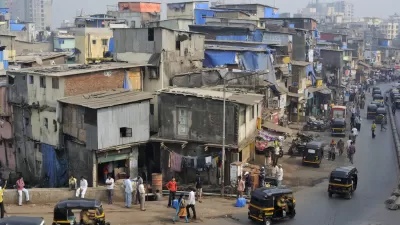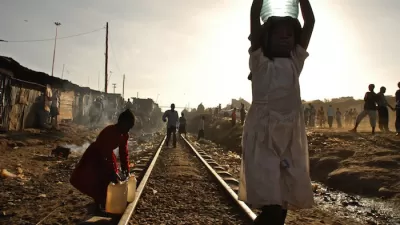Kerwin Datu reflects on the implications of treating the world's diverse mixed-use slums as residential only enclaves.
The danger is identifying informal settlements by residential metrics alone is that policy responses will only be directed at ameliorating housing issues. As Datu explains, "The primacy given to a slum's residential spaces determines the kinds of policies used to address them, such as affordable housing schemes, housing financing mechanisms, sites and services projects, etc. The beneficiaries of such policies are typically the household, and access to benefits restricted to that type of occupant."
Ignoring the diverse activities such as manufacturing, education, and health care taking place side-by-side in many slum communities will inevitably limit the positive outcomes of interventions planned by well meaning governments and NGOs.
"While our definitions of slums must incorporate more kinds of spaces, recognising the multiple functions within slums means recognising that slum communities require and deserve much more space than they currently occupy. When we upgrade or replace slum housing on a one-to-one basis, we are maintaining the status quo that slum communities must double-up on how they use spaces, reproducing the overcrowding and health and safety risks these overlapping activities create."
FULL STORY: Has our focus on housing distracted us? Towards a right to space

Planetizen Federal Action Tracker
A weekly monitor of how Trump’s orders and actions are impacting planners and planning in America.

Map: Where Senate Republicans Want to Sell Your Public Lands
For public land advocates, the Senate Republicans’ proposal to sell millions of acres of public land in the West is “the biggest fight of their careers.”

Restaurant Patios Were a Pandemic Win — Why Were They so Hard to Keep?
Social distancing requirements and changes in travel patterns prompted cities to pilot new uses for street and sidewalk space. Then it got complicated.

Platform Pilsner: Vancouver Transit Agency Releases... a Beer?
TransLink will receive a portion of every sale of the four-pack.

Toronto Weighs Cheaper Transit, Parking Hikes for Major Events
Special event rates would take effect during large festivals, sports games and concerts to ‘discourage driving, manage congestion and free up space for transit.”

Berlin to Consider Car-Free Zone Larger Than Manhattan
The area bound by the 22-mile Ringbahn would still allow 12 uses of a private automobile per year per person, and several other exemptions.
Urban Design for Planners 1: Software Tools
This six-course series explores essential urban design concepts using open source software and equips planners with the tools they need to participate fully in the urban design process.
Planning for Universal Design
Learn the tools for implementing Universal Design in planning regulations.
Heyer Gruel & Associates PA
JM Goldson LLC
Custer County Colorado
City of Camden Redevelopment Agency
City of Astoria
Transportation Research & Education Center (TREC) at Portland State University
Camden Redevelopment Agency
City of Claremont
Municipality of Princeton (NJ)




























